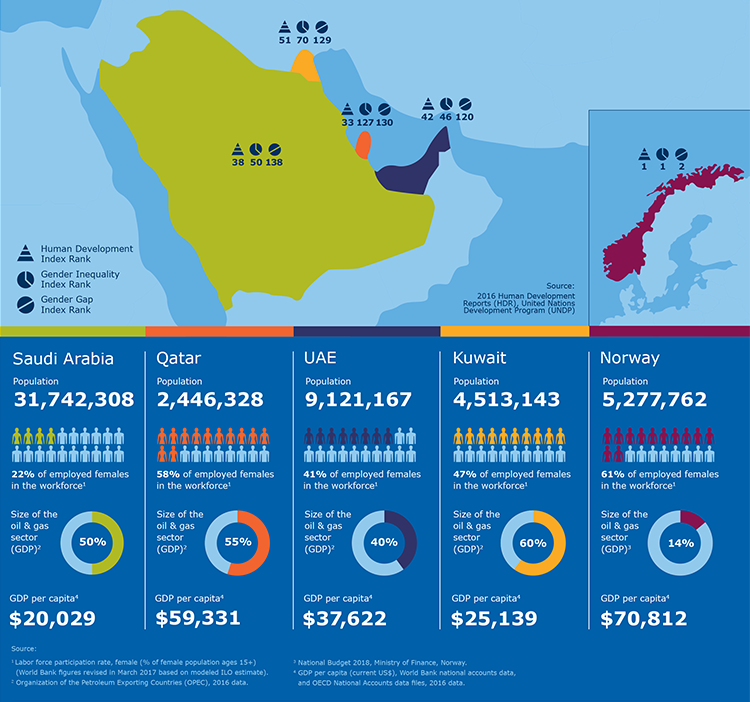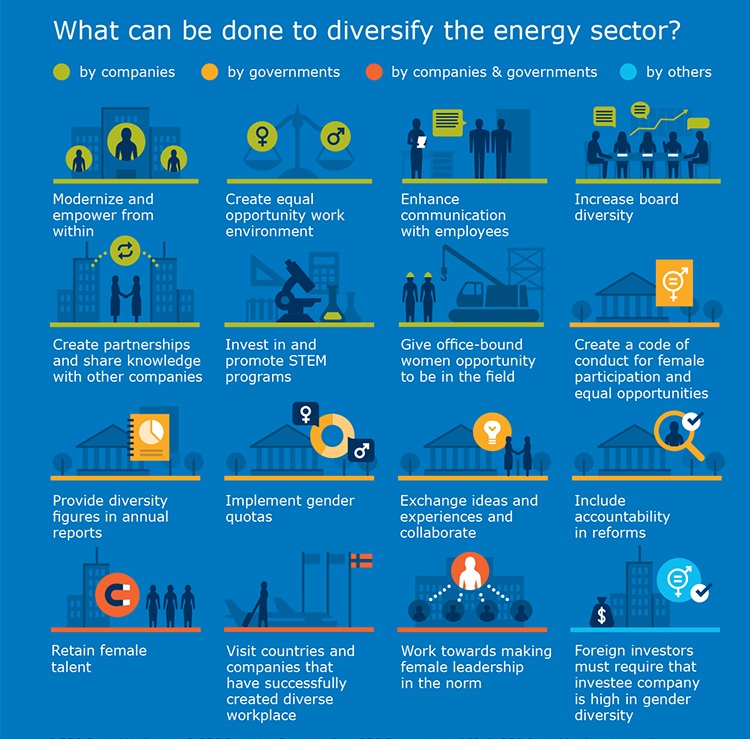As part of our sponsorship of the Atlantic Council’s Global Energy Forum, RBC is proud to present ‘Energy - Driving Force Behind Increasing Female Participation in the Gulf?’. Co-sponsored by RBC and the Atlantic Council and written by Bina Hussein, Associate Director, Energy Diplomacy Initiative, the report examines the current state and importance of female participation in the workforce in four oil rich countries: Saudi Arabia, Qatar, the United Arab Emirates (UAE) and Kuwait.
In the midst of one of the worst crises to hit the industry in decades, female participation has never been so important. This is especially true for the oil and gas-reliant economies of the Persian Gulf. Local governments in the region have launched vast diversification roadmaps, some spanning decades, to ensure they pursue their economic development by reducing their exposure to commodity price fluctuations – or risk seeing their dreams shattered by falling commodity prices.
Saudi Arabia, Kuwait, Qatar and the UAE may be at different stages of their economic transition, but their strategies all have one thing in common: they have included female participation as a development goal. Currently, the female population in those four Gulf countries is a grossly under-utilised asset - of the small number who work, most do in the state sector; women are, overall, more educated than their male counterparts, but are not trained in the most promising areas and face many barriers to recruitment and career progression. As a result, in the energy sector like in the rest of the private sector, successful female workers and leaders in Gulf companies are few and far between. Yet leveraging this source of human and intellectual capital could help dramatically accelerate the shift to the knowledge economy.

There is therefore an important need, and a prime opportunity, to rebalance the traditional division of labour between males and females in those economies. It’s an ambitious and arduous task, rendered more difficult by the local socio-cultural context, but this is in no way impossible. Look at Norway, if there was ever an example of what an energy-heavy economy can achieve in terms of female inclusion this is definitely it. The Scandinavian country ranks first globally in the United Nations’ Gender Inequality Index. Not coincidentally, it is also number one worldwide in the UN’s Human Development Index and its GDP per capita, at USD$70,812 annually per head, is equivalent to 711% of the world's average, well ahead of the world’s biggest economy, the United States.
So how did they do it? Unlike in other nations, gender mainstreaming isn’t just a development goal in Norway but a legal requirement. Through a series of laws such as the game-changing 1978 Gender Equality Act, Norway has drastically advanced the position of women in society and used the money generated by the lucrative oil and gas industry to invest in its future though the powerful Government Pension Fund - Global. However, for all its efforts, at Norway’s largest energy company, Statoil (67% government-owned), true gender equality remains a target that the company still strives to achieve. The compulsory 40% female target may have been reached at the board level, however, an overwhelming majority of the workforce remains 69% male.

For the energy sector and all the economies relying on it to achieve their dreams of a bright and prosperous future, female participation is not just ‘nice to have’ - it is essential for their survival.